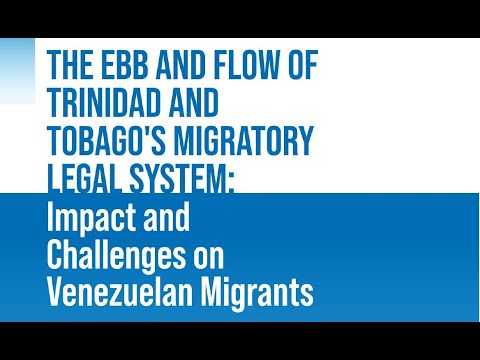The Ebb and Flow of Trinidad and Tobago’s Migratory Legal System
Trinidad and Tobago, a twin-island nation located in the southern Caribbean, has historically been a hub for cultural diversity and economic activity. In recent years, however, the country has faced a unique set of challenges stemming from the socio-political and economic crisis in neighboring Venezuela. The crisis, characterized by hyperinflation, food and medicine shortages, political instability, and human rights violations, has forced a significant number of Venezuelans to seek refuge in neighboring countries, including Trinidad and Tobago. The Venezuelan migration crisis, which began around 2015, has resulted in one of the largest displacement movements in the region’s history. Millions of Venezuelans have fled their home country, seeking safety and opportunities in neighboring countries. Trinidad and Tobago, due to its proximity, has become a notable destination for many Venezuelan migrants. This influx of migrants has prompted complex legal, socio-economic, and humanitarian challenges for the nation. Trinidad and Tobago’s migratory legal framework has undergone shifts and adaptations as it grapples with the Venezuelan migration crisis. The framework encompasses immigration laws, asylum procedures, detention policies, and integration measures. However, the evolving nature of the crisis has made it challenging for the legal system to keep pace with the changing dynamics of migration. Some challenges faced by Venezuelan Migrants are: Legal Status, Access to Services, Work Exploitation, Detention and Deportation, Xenophobia and Discrimination. While Trinidad and Tobago has taken steps to address some situations, including registration processes and regularization efforts, challenges remain in ensuring a rights-based and humanitarian response to the crisis.
source

